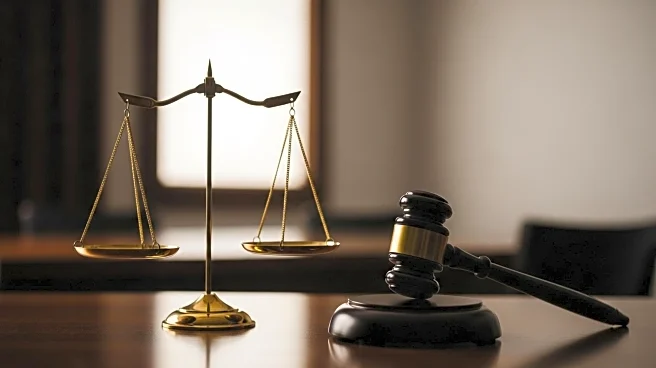What's Happening?
Closing arguments are set to begin in the trial of Ryan Routh, who is charged with attempting to assassinate President Trump last year at his West Palm Beach golf course. Routh, who has pleaded not guilty, has represented himself throughout the trial. The prosecution presented a detailed case over seven days, calling 38 witnesses to support their claim that Routh planned to assassinate Trump. Routh's defense, which lasted only three hours, included three witnesses. Among them were two character witnesses from North Carolina and a former Marine sniper, Michael McClay, who testified about the malfunctioning rifle allegedly used in the attempt. The prosecution argues that the rifle's functionality is irrelevant to the charge, which requires only intent and a substantial step toward the attempt.
Why It's Important?
The trial's outcome could have significant implications for legal standards regarding intent and preparation in assassination attempts. A conviction could reinforce the threshold for what constitutes a 'substantial step' in such cases, potentially influencing future legal proceedings. The case also highlights the challenges of self-representation in complex legal matters, as Routh's defense strategy has been criticized for its lack of coherence and effectiveness. The trial underscores the ongoing security concerns surrounding high-profile political figures and the legal system's role in addressing threats to their safety.
What's Next?
As the trial concludes with closing arguments, the jury will soon deliberate on Routh's fate. The decision could prompt reactions from various stakeholders, including legal experts and political commentators, who may analyze the implications of the verdict. Depending on the outcome, there could be discussions about the adequacy of current legal frameworks in handling similar cases and the potential need for legislative adjustments.









